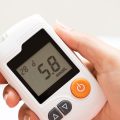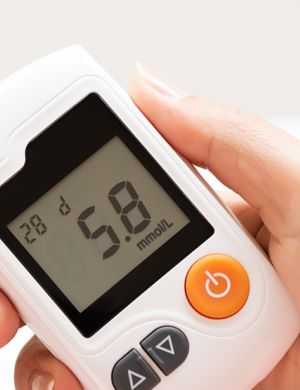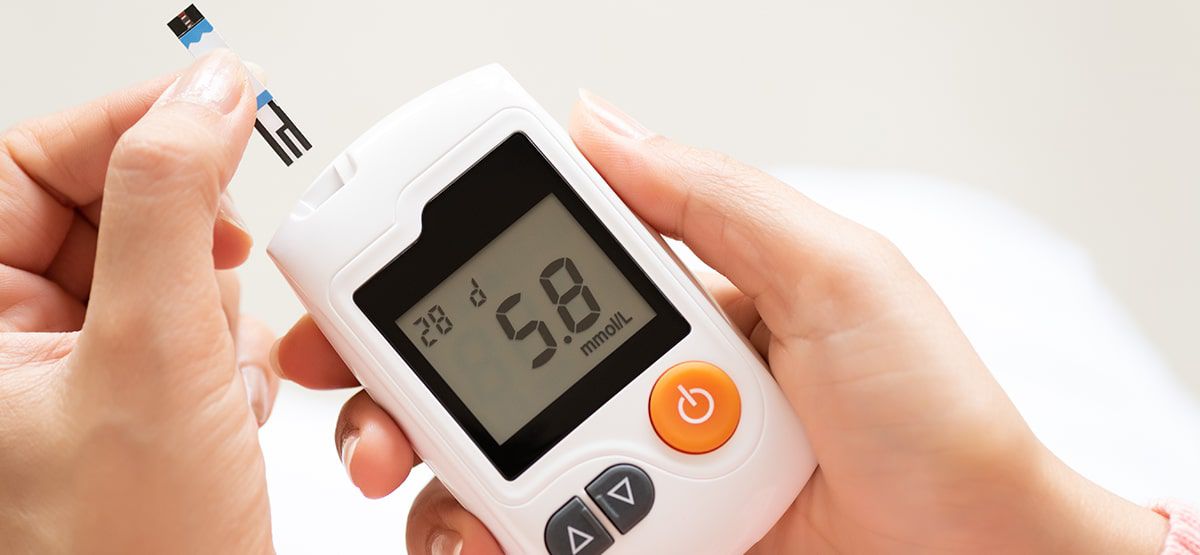
Medical Devices – USA, Europe, Asia and ROW Regulatory News – Mar 2025
USA
Evaluation of Sex-Specific Data in Medical Device Clinical Studies – Guidance for Industry and Food and Drug Administration Staff
This guidance document, issued by the FDA, focuses on the importance of considering sex-specific data during the clinical evaluation of medical devices. It provides directions on how manufacturers should collect and evaluate data for both male and female populations to ensure the safety and effectiveness of medical devices for all users. This is part of an ongoing effort to improve the accuracy and reliability of clinical studies by incorporating sex-based differences in health outcomes, which is increasingly recognized as a critical aspect of regulatory compliance
EUROPE
Guidance on Classification Rules for in vitro Diagnostic Medical Devices under Regulation (EU) 2017/746
The latest revision of MDCG 2020-16 provides updated guidance on the classification of in vitro diagnostic medical devices (IVDs) under Regulation (EU) 2017/746 (IVDR) and clarifies the application of Annex VIII classification rules. This document applies to IVDs placed on the EU market, including diagnostic services performed on EU patients or devices made available via distance sales. Developed in collaboration with Member State Competent Authorities, Commission services, notified bodies, and industry experts, this guidance ensures uniform application of classification provisions while considering the 2019 Corrigendum. It is primarily aimed at manufacturers, notified bodies, and health institutions, helping them classify IVDs before market placement while also informing regulators and stakeholders assessing manufacturer-attributed classifications. Additionally, the European Commission retains the authority to issue implementing acts to resolve classification disputes or divergent interpretations upon request from a Member State or at its own discretion (Article 47(3-5) IVDR).
AUSTRALIA
Complying with Unique Device Identification (UDI) Requirements for Medical Devices
In Australia, the Therapeutic Goods Administration (TGA) requires medical devices to comply with the Unique Device Identification (UDI) system to enhance patient safety and device traceability. The requirements include labeling devices with a unique identifier, which must be submitted to the Australian Register of Therapeutic Goods (ARTG). Class III and active implantable devices must meet UDI requirements by 1 July 2024, Class II and notified devices by 1 July 2025, and Class I devices by 1 July 2026. The UDI system also plays a key role in post-market surveillance, helping to track adverse events and device recalls. Manufacturers and sponsors must ensure compliance within the specified timelines to meet TGA standards.
Complying with Unique Device Identification (UDI) Timeframes for Medical Devices
The Australian Therapeutic Goods Administration (TGA) has set specific timeframes for complying with the Unique Device Identification (UDI) system for medical devices. Class III and active implantable devices must be UDI-compliant by 1 July 2024, Class II and notified devices by 1 July 2025, and Class I devices by 1 July 2026. Manufacturers and sponsors are required to ensure that their devices are labeled with a UDI and submit relevant data to the Australian Register of Therapeutic Goods (ARTG). This ensures better device traceability, patient safety, and effective post-market surveillance
Preparing for Good Clinical Practice (GCP) Inspections
The regulatory authority has released updated guidance to help clinical trial sites prepare for Good Clinical Practice (GCP) inspections for clinical trials involving investigational biologicals, medicines, and medical devices under the Clinical Trial Notification (CTN) or Clinical Trial Approval (CTA) schemes. The guidance stresses the importance of maintaining accurate documentation, ensuring staff training in GCP standards, and having the proper infrastructure to conduct trials. It emphasizes the safety of trial participants, regular monitoring for compliance, and adherence to regulatory requirements. The goal is to ensure high standards of clinical research and successful regulatory inspections
Understanding requirements for medical devices containing medicinal, microbial, recombinant or animal origin substances
The TGA has introduced new regulatory requirements effective from 1 July 2024, impacting the classification, labelling, and conformity assessment of medical devices containing medicinal, microbial, recombinant, or animal-origin substances. Key changes include amendments to classification rule 5.5, stricter labelling requirements, and expanded acceptance of conformity assessment evidence. Existing devices may require reclassification by 1 July 2026. Sponsors and manufacturers must review their portfolios, update documentation, and ensure compliance with the new rules.
BRAZIL
Anvisa Opens Public Consultation on UDI Database for Medical Devices
Anvisa (Brazilian Health Regulatory Agency) has opened a public consultation on the implementation of the Unique Device Identification (UDI) database for medical devices in Brazil. This consultation seeks feedback on the requirements for transmitting and managing UDI data under the Unified Device Identification System (SIUD). The proposed guidelines address the submission of UDI data, define the authorized agents for data submission, and outline procedures for data correction and transfer of ownership. While the UDI submission will not be immediately mandatory, the regulation sets deadlines for mandatory submissions based on device classification: 3.5 years for Class IV, 4 years for Class III, 5 years for Class II, and 6 years for Class I devices. Anvisa plans to publish an implementation guide and technical manual to help companies comply with the new requirements.
CHINA
Opinions of the General Office of the State Council on Deepening Drug and Medical Device Regulation Reform
The General Office of the State Council has issued guidelines to deepen the reform of drug and medical device regulation, aiming to promote the high-quality development of China’s pharmaceutical industry. The reform focuses on enhancing review and approval processes for innovative drugs and medical devices, improving industry compliance, accelerating clinical trials, and aligning with international standards. By 2027, the aim is to establish a more efficient and competitive regulatory system, ensuring the safety, efficacy, and accessibility of products while fostering innovation.
FRANCE
Declaration of Unavailability of Medical Devices
Starting January 10, 2025, the procedure for manufacturers to declare the unavailability of medical devices (MDs) and in vitro diagnostic medical devices (IVDMs) has been harmonized across Europe. Manufacturers are now required to report in advance any situation involving the discontinuation or temporary disruption of the supply of MDs and IVDMs. This declaration must be made using a common form that all Member States will accept, fulfilling the new obligation outlined by the European regulation. This European procedure builds upon previous actions initiated at the national level since 2021, with a continued emphasis on anticipation, information circulation, and transparency to ensure continuity of care and patient safety
IRELAND
Verification of Economic Operator Registration Details for Medical Device Inspections
As part of regulatory oversight, the Health Products Regulatory Authority (HPRA) is conducting an activity to verify the registration details of medical device economic operators (EOs) prior to conducting inspections. Selected economic operators will receive an email from the HPRA directing them to complete a Microsoft Office Form.
The form will request key details, such as contact information, the registered business address, the roles performed by the economic operator, and locations of any other associated businesses or outsourced activities. Economic operators are required to complete the form and provide all relevant information promptly to ensure compliance and facilitate the inspection process.
MALAYSIA
Collaboration between mda and mynic berhad in the enforcement of monitoring the sale and advertising of medical devices on websites.
The Medical Device Authority (MDA) and MYNIC Berhad are collaborating to monitor and regulate the online sale and advertising of medical devices in compliance with Act 737 and the Medical Devices (Advertising) Regulations 2019. A briefing session on March 5, 2025, at the MDA office in Cyberjaya brought together MYNIC’s Operations and Legal Officers to discuss enforcement strategies. This partnership aims to enhance compliance, prevent misleading advertisements, and ensure consumer safety in Malaysia’s growing digital healthcare market.
Implementation of medical device import permit
The Medical Device Authority (MDA) of Malaysia has announced the implementation of a Medical Device Import Permit system, requiring importers to apply for permits through the online ePermit system at least 7 days before medical device shipments. The application processing typically takes 3 working days, with expedited processing available for urgent shipments. The import permit fee is RM130 per application, and a verification slip costs RM50. The MDA is also offering training sessions to assist importers, including virtual briefings and hands-on training. This new system aims to streamline the importation process, ensuring compliance with regulatory standards and enhancing the safety and quality of medical devices in Malaysia.
SINGAPORE
Public Consultation on Best Practices Guide for Medical Device Cybersecurity
The Medical Devices Cluster (MDC) has published a draft Best Practices Guide for Medical Device Cybersecurity and is seeking stakeholder feedback. The guide outlines best practices and key cybersecurity principles to help medical device manufacturers and healthcare providers secure medical devices throughout their Total Product Life Cycle (TPLC). Stakeholders are encouraged to review the draft and submit feedback during the consultation period from 10 March 2025 to 12 May 2025 using the provided template and online form. This consultation aims to refine the guide before its finalization.
SOUTH KOREA
Ministry of Food and Drug Safety’s Cosmetics Day, Medical Device Day, etc. Amendment to the relevant laws passed at the plenary session of the National Assembly
South Korea’s Ministry of Food and Drug Safety (MFDS) announced the passage of six regulatory amendments, including revisions to the Medical Device Act, In Vitro Diagnostic Medical Device Act, and Cosmetics Act. The amendments introduce “Medical Device Day” on May 29 to promote awareness of the industry’s significance and strengthen enforcement measures by allowing authorities to seize assets from non-compliant medical device businesses. The Cosmetics Act now requires Braille and sign language conversion codes on packaging to improve accessibility for visually and hearing-impaired consumers, while also establishing September 7 as “Cosmetics Day” to boost industry competitiveness. Additionally, stricter safety inspections will be enforced for imported cosmetics to ensure consumer protection. These regulatory updates aim to enhance public safety, streamline enforcement, and modernize industry practices in South Korea.
Administrative Notice of Medical Device Manufacturing and Quality Control Standards (Notice No. 2025-124, ‘25.3.11)
The update proposes amendments aimed at improving the efficiency of audits for Class 3 medical devices by allowing the quality control audit agency to conduct conformity certification assessments independently, without requiring joint review by the regional Food and Drug Administration. It also introduces a legal basis for integrating conformity recognition with international standards like the MDSAP Quality Management System Certification. Additionally, the amendments ensure consistent terminology across regulations and align with the Digital Medical Products Act, which came into effect on January 24, 2025.
2025 Medical Device Non-Clinical Trial Institution Inspection and Designation Plan
This document provides a regulatory update on the designation, inspection, and compliance enforcement for non-clinical trial institutions under the South Korean Medical Device Act. It cites relevant legal provisions, including Articles 10, 24, 32, 33, 37, 39, 42, 53, and 54, outlining the criteria for designation, reporting obligations, inspections, and penalties. As of March 2025, 15 institutions have been officially designated, including the Korea Testing & Research Institute of Chemical Convergence Hwasun. The 2025 inspection plan mandates periodic inspections, fact-finding surveys, and reliability evaluations to ensure compliance. Institutions failing to meet regulatory requirements may face revocation of designation, administrative penalties, or enforcement actions as per the Medical Device Act.
2025 Medical Device Clinical Laboratory Management Basic Plan Notification
The updated 2025 Medical Device Clinical Laboratory Management Basic Plan outlines inspection procedures and classification of findings related to clinical trials. Inspection results are categorized based on their impact on patient safety and clinical trial quality. Non-conformities include violations of clinical trial protocols, data falsification, and regulatory breaches, which may result in suspension, accusations, or cancellation of designation. Less severe findings are classified as corrections, cautions, or recommendations to enhance compliance. Additionally, the document provides procedures for inspecting new and revised clinical trial sites, emphasizing the reliability of clinical trial data during approval processes. On-site inspections and fact-finding surveys may be conducted at trial sites and sponsors (or CROs) when requested by regulatory review departments.
SPAIN
The AEMPS Details the Procedure for Publishing Clinical Research Reports on Medical Devices
Due to the unavailability of EUDAMED, the European database on medical devices, the Medical Device Coordination Group (MDCG) has introduced Guideline 2024-015, establishing a temporary procedure for the submission and publication of clinical investigation reports and their summaries. As required by EU MDR (Regulation (EU) 2017/745), sponsors must submit a final report and a layperson summary to the Member States where the clinical investigation took place. In Spain, AEMPS mandates submission through the General Registry of the General State Administration within one year of completion or three months for early termination or suspension. The AEMPS will process, label, and publish these reports in a public directory on the CIRCABC Commission platform, ensuring compliance and transparency. The European Commission will later upload these documents to the CIRCABC MDR Clinical Research Reports directory. This temporary process remains in effect until EUDAMED is fully operational.
THAILAND
FDA Strict supervision of medical device standards, aiming for safe consumers.
The Thai FDA is enhancing nationwide supervision of medical devices by improving inspection, control, and enforcement to ensure safety and quality. In response to rising advertising violations—171 cases in 2023, 349 in 2024, and 161 so far in 2025—the FDA is tightening regulations to promote fair competition. To streamline operations, licensing authority has been delegated to provincial governments, making it easier for rural businesses to comply. These efforts aim to strengthen public health and position Thailand as an international medical device hub.
UNITED KINGDOM
Guidance on Exceptional Use Authorization
Exceptional Use Authorization (EUA) is a regulatory process that allows for the temporary approval or use of medical products, such as drugs, vaccines, or medical devices, during public health emergencies. It enables faster access to critical products when there is an urgent need, but full regulatory approval cannot be achieved in the necessary timeframe. EUA is typically temporary, with conditions on use, and is granted by regulatory agencies like the FDA or Health Canada. The products approved under EUA are monitored for safety and effectiveness until full approval can be obtained or the emergency situation ends. EUAs have been crucial in addressing emergencies like the COVID-19 pandemic, where vaccines, diagnostic tests, and therapeutics were authorized for use in the crisis.
Guidance on Safety communications concerning medicines, medical devices and other healthcare products
Safety communications are official messages issued by regulatory authorities, such as the FDA, EMA, or Health Canada, to inform the public and healthcare professionals about potential risks associated with medicines, medical devices, and other healthcare products. These communications include alerts on adverse events, product recalls, labeling changes, and new safety information that may affect the use of a product. They also cover any regulatory actions, such as restrictions or changes to product approvals. Safety communications help ensure public health by providing timely and actionable information, allowing healthcare professionals and the public to take necessary precautions to prevent harm.
Don’t miss out! Click here to stay in touch.
Categories
- Biopharma (59)
- Consumer Health (22)
- Cosmetics (11)
- Diagnostics (5)
- Digital Health (8)
- Food (2)
- Medical Device (113)
- OTC (5)
- Regulatory Intelligence (13)
- Standards (41)
Recent Blogs
Get the latest updates from Vistaar

Related Posts
CONNECT WITH US

Let's talk about how Vistaar can help you





